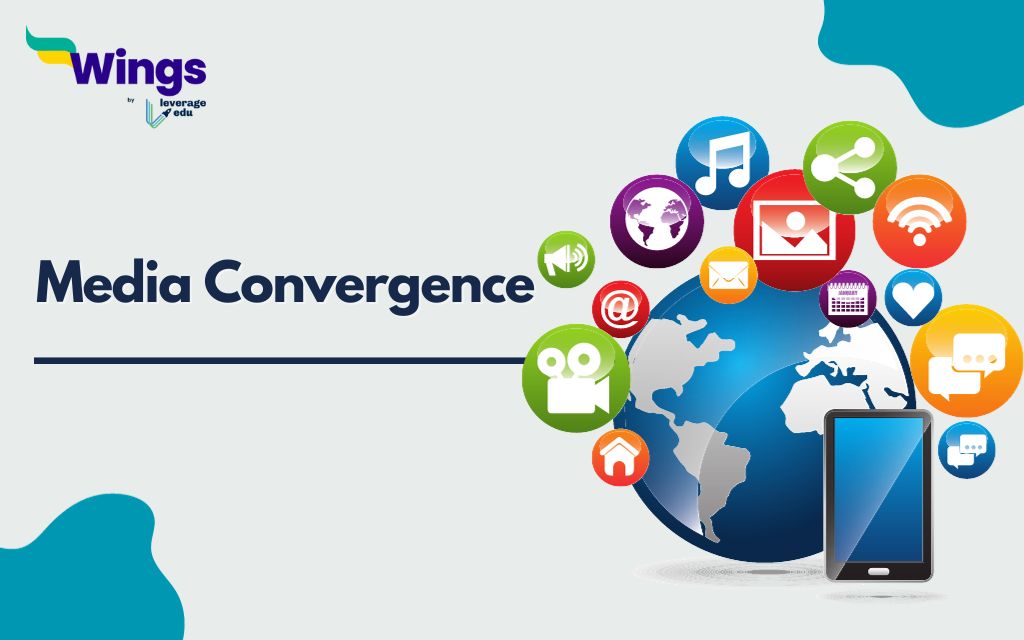Media Convergence
- Communication around the world has been transformed by media and technology. Nowadays, there are numerous methods to showcase your work, show your opinions on various problems, and disseminate acquaintance and info worldwide because of the widespread digitalization and the extensive use of the internet, a phenomenon known as Media Convergence has emerged. Organizations and industries globally have started to change their approaches by combining different media types for better operation and progress. this blog will be discussing the various structures of media convergence, benefits, and examples. Media Convergence in Canada
What is media convergence?
is the process of combining different types of media channels, both
traditional and modern, to enhance the production of media content. This
involves merging traditional and new media to adapt to new technologies. The
convergence can be of two types - technical convergence and cultural
convergence. media
convergence
Here are some examples of media
that have converged with technology to create new forms of content:
Converging radio, paperbacks, cameras, music, and media into digital technology. Converging different forms of media with the internet has resulted in the emergence of online radio, e-books, smartphones, and news websites and apps. Converging radio with the internet, paperbacks with digital technology, and multiple media with smartphones have revolutionized technology. News websites and apps have also become essential sources of information.
BENEFITS
Media convergence has become increasingly
advantageous in the digital age, as the constant stream of content seeking our
attention requires a more streamlined approach to media consumption. Here are
some key benefits of media convergence:
- Media
convergence between traditional and innovative media provides several
benefits.
- One of
the benefits is the direct availability of news and moment-based content.
- Content
creators can target specific readers by disseminating customized content.
- Media
convergence empowers audiences to become creators themselves.
- The
integration of traditional and innovative media extends the limits of
traditional media.
- It
provides instant and modern content on a global level.
- Digital
marketing has become more affordable due to media convergence, making it a
valuable and
cost-effective process.
Courtesy: Gary Phayes (Canadian Encyclopaedia)
Media
convergence is a term that can be well-defined in situations of industrial,
technological, societal, textual, and political terms.
three types of media convergence
- Technological Convergence Media Studies
- Technological Convergence - Key Words
- Economic
Convergence
- Cultural
Convergence
Are you wondering why media convergence is so
significant? Well, it's vital because its combines computer networks, and communication
technologies resulting in the rapid alteration of several recognized, services, industries, and work practices. As a result, innovative forms of content are created,
making it a crucial aspect of today's media landscape.
- Media convergence has brought significant changes
to communication, news reporting, and journalism.
- With the rise of portable devices, people can
access a vast amount of content across different media platforms, leading to
cross-media.
- News organizations no longer depend on print or
AV transmission.
- Media convergence has resulted in the emergence
of innovative forms of journalism, such as media journalism.
- Several new media forms have arisen, such as
blogging, news podcast, news feeds, mobile website, and website.
- These recently linked media platforms offer access
to archives and unlimited chances for handlers to comment on stories or give
links to applicable material.
Media convergence is a
phenomenon that combines different types of media content, providing faster
access and wider international reach to users. However, it also has some
drawbacks that need to be considered. Here are the key disadvantages of media
convergence:
- Evaluating customer responses and reactions can be difficult as they are
dispersed across varied converged platforms.
- There is more competition for
customers' attention due to the presence of several media platforms on a single
device.
- Readers may feel speechless
with the huge quantities of information excess.
- The earlier generation and
disabled segments of the community may find it tough to study the digital
skills necessary to utilize diverse types of media.
- Media convergence is extremely
reliant on the internet and technology, which means that zones without access
to these resources may encounter issues with consuming information online. Read
more Advantages
and Disadvantages of Media Convergence

How do you think media convergence affects media literacy among the general public? Are people becoming better at navigating complex media landscapes, or is it leading to more confusion?
ReplyDelete